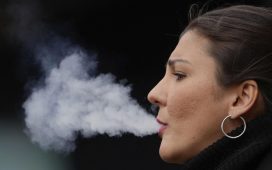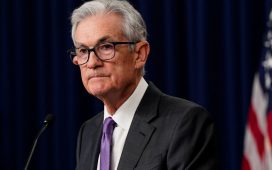The Centers for Disease Control and Prevention (CDC) this week delivered a tough blow to the airline industry, which is struggling to recover from the coronavirus pandemic.
While the CDC issued a number of recommendations that allow vaccinated and low-risk people more freedom to gather, CDC Director Rochelle WalenskyRochelle WalenskyCDC director: ‘I worry about the day where the vaccine will no longer be free’ Fauci to spring breakers: ‘Don’t put your guard down completely’ Texas ends mask mandate as leaders urge caution MORE said Monday that the agency’s advice on travel remains the same for both vaccinated and unvaccinated Americans: Don’t do it.
But some experts called that guidance confusing and the airline industry, while saying it would continue to work with the CDC, stressed its efforts to prevent coronavirus transmission aboard aircraft and its confidence that its approach is safe.
“We remain confident that this layered approach significantly reduces risk and are encouraged that science continues to confirm there is a very low risk of virus transmission onboard aircraft,” said a spokesperson for Airlines for America, which advocates for major U.S. airlines.
President Biden
“We continue to work with the CDC and other appropriate authorities to ensure the implementation of travel policies and measures that prioritize the safety and wellbeing of all passengers and employees,” the Airlines for America spokesperson said.
Delta, Southwest, United and American Airlines all deferred to Airlines for America for comment.
Leana Wen, a public health professor at George Washington University and former Baltimore health commissioner, called the guidance on Monday “far too cautious.”
“A lot of families are separated from one another and need to travel to see one another. I’m really befuddled by why the guidance around travel was not changed. Travel is very low risk — imagine if you’re traveling in your individual car or even by plane — whenever everyone is wearing masks, the risk of coronavirus is very low,” she said.
The airline industry has not asked for any changes on mask wearing policies but it has called for a set of criteria that could be used to adjust their travel guidance.
“We continue to urge the CDC to establish and release a set of criteria that will be used to adjust their guidance regarding travel,” an industry source said.
Airlines for America and other industry groups called on the Biden administration this week to develop COVID-19 health credentials that include information about tests and vaccinations, led by the CDC, so travelers can have identify verification and personal health records on hand.
The U.S. Travel Association stressed that getting past the pandemic is the priority, but also that goals should be set for relaxing some restrictions.
“We feel it is critical for U.S. public health officials to set goals for relaxing the official guidance around travel. The year-long pause of travel has kept people apart and caused serious damage to the economy and jobs, and with vaccines progressing and encouraging case trends in many areas, it should be possible to consider a time frame for a broader reopening of travel,” said Tori Emerson Barnes, executive vice president of public affairs and policy.
Sara Nelson, international president of the Association of Flight Attendants-CWA, wasn’t critical of the CDC recommendation on Monday and said the U.S. is on the road to recovery.
“The CDC’s policy has not changed. This reinforces the urgency of increasing vaccine capacity and distribution, and overall efforts to end the pandemic. COVID is the problem. We must remain vigilant and get people vaccinated as quickly as possible,” she said.
The CDC did not respond to a request for comment on what needs to be done in order to lift the travel restriction.
“We are really trying to restrain travel at this current period of time, and we’re hopeful that our next set of guidance will have more science around what vaccinated people can do, perhaps travel being among them,” Walensky said on Monday.
Rep. Rodney Davis
“The whole point of vaccinating Americans against COVID is to save lives while expediting our country’s return to normal. People who continue to support the status quo of COVID restrictions even as millions more Americans are vaccinated each day will end up deterring a huge number of Americans from even getting the vaccine at all,” he said.
The CDC also recommended vaccinated individuals do not need to quarantine or get tested if they come into contact with someone with COVID-19 and do not develop symptoms.
Wen called that guidance confusing.
“If they’re saying that you don’t even need to quarantine after being exposed to someone with known COVID-19, can you not get on a plane and sit there, masked, with people who, chances are, don’t have COVID-19? It just doesn’t make common sense,” she said.
Air travel is slowly returning but has not yet reached pre-pandemic levels. The Transportation Security Administration (TSA) screened 1,277,719 passengers on Sunday and the last time the volume was that high was on Jan. 3 when 1,327,289 passengers were screened for holiday travel.
On Saturday, TSA screened 991,547 passengers. The previous year on March 6, the agency screened 2,198,517 passengers.
The coronavirus relief legislation the Senate passed Saturday is set to provide some help to the industry. Airlines got a $15 billion boost and an extension of the Payroll Support Program, which was a key provision in the CARES Act that was set to expire April 1.
The extension will allow airlines to keep workers on payroll through Sept. 30.
When pressed about what guidance the CDC would give to a governor regarding vaccinated people traveling back to their state, Walensky emphasized that the recommendations haven’t changed.
“Our travel guidance is unchanged, and so we would maintain whatever travel guidance is currently in place. We would like to give the opportunity for vaccinated grandparents to visit their children and grandchildren who are healthy and who are local, but our travel guidance currently has been unchanged,” he said.
Harvard University’s National Preparedness Leadership Initiative found “scientific evidence showing that consistently following a layered approach serves as a strong risk mitigation strategy for SARS-COV-2 transmission on an aircraft,” according to a report released last month.
The report, which assessed the risk of COVID-19 transmission during air travel, found a “very low probability” of being infected with COVID-19 from an aircraft and recommended following the multilayered approach of wearing a mask and physical distancing while boarding and deplaning.
Wen fears that not allowing vaccinated people to travel could mean unvaccinated people aren’t incentivized to view vaccination as a return to normal.
“We need to become a lot clearer about the freedoms that an individual can have once they have proof of vaccination,” she said. “I think that people who are fully vaccinated should be able to travel and should be in fact encouraged to travel, of course with all the precautions.”






